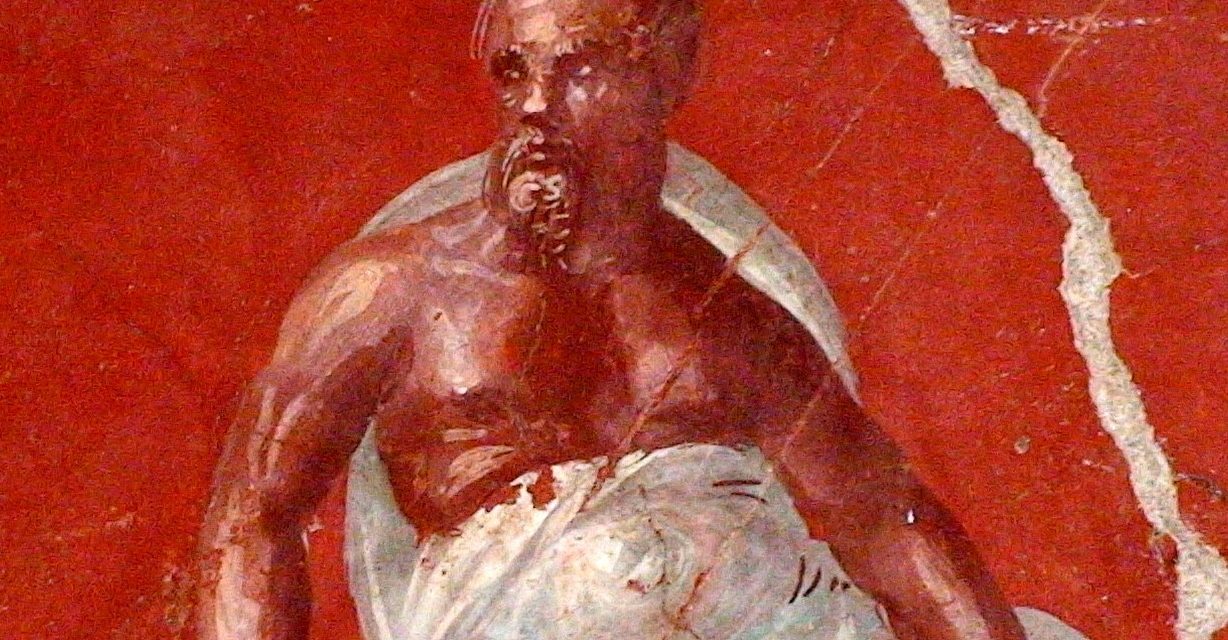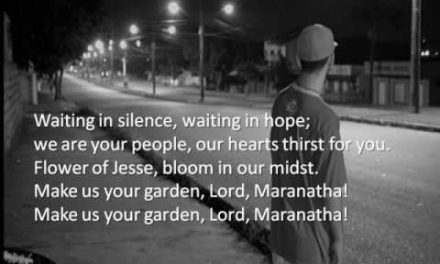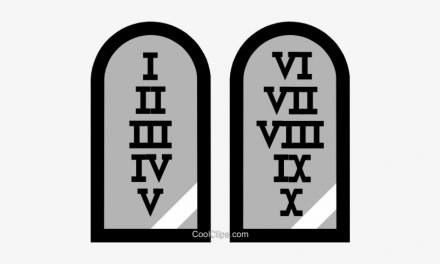I never thought Paul Krugman would remind me of Socrates, but there you have it. In his November 11th op-ed in the New York Times entitled “Thoughts for the Horrified,” Krugman exhorts his readers to “remember that elections determine who gets the power, not who offers the truth…. Lies are lies, no matter how much power backs them up.” The claim is rather prosaic, to say the least, and Krugman’s rendering of it is not especially artful; nevertheless, I suspect that many have now come to appreciate it in a new and deeper way. The question of power’s relationship to truth is as old as political thought itself. Indeed, in a sense it gave rise to Philosophy itself, at least as we know it in the West.
While many ancient thinkers creatively explored questions of cosmic scope, it was Socrates who transposed that sort of disciplined reasoning into the public and ethical sphere. Particularly in his repeated confrontations with those who sought to win acclaim and influence through rhetorical skill alone (those we label “sophists”), Socrates repeatedly inquires into the question of whether what is most noble proves to be what is most beneficial for us, both as individuals and as a community. In his debates with the likes of Thrasymachus, Callicles, and Glaucon over the true nature of justice, Socrates consistently defends a strikingly counter-intuitive conclusion: the more truthful and virtuous one’s actions are, the more conducive they are to one’s own well-being. This conviction even led him to his famous contention that “a good man cannot be harmed by a worse… whether in life or in death.” To know the truth and live according to it is not only the greatest good for the human person; it is one that, once attained, can never be taken away by force alone. Socrates held true to that conviction even when condemned to death by his city.
For Socrates justice cannot be simply “the will of the stronger,” as Thrasymachus would have it. If that were true, then justice would simply boil down to the imposition of raw power, and so it would consequently lie beyond the reach of reason to discover. Rather, justice must name a correspondence between one’s actions and a point of reference outside the agent; otherwise “justice” would simply designate the state of affairs established by the weak’s submission to the strong. If justice is not something that rational agents can discover and pursue in common, then in a real sense justice belongs to those in power—to those who find it to their advantage to call certain states of affairs “just.” It is precisely Socrates’ faith in rational beings’ common accessibility to justice that impels him day after day to engage his fellow Athenians in interminable discourse as to its essential nature.
But of course those who persist in the view that justice is simply about settled arrangements of power have little reason to engage in such discourse. For them, it is enough to say “shut up, Socrates” and be on their way. Indeed, that is exactly what happens in several cases. If power requires no validation from reason, then we may look only to power’s exercise to see where justice lies. And if we’re honest, such has been the logic of worldly rulers from time immemorial: from Ashurbanipal to Stalin, strongmen have explicitly based their claims to rule upon their power to kill.
The only way it can be otherwise is if justice derives from a relation to something other than the ruler himself, a relation that reason can discover and discern. To put it another way, justice must be something real, something that we apprehend and implement through the proper exercise of what is highest in us—reason. Just as virtue and flourishing are inextricably linked for Socrates, so must justice and truth be integrally bound together. You cannot truly find one without the other. Hence even if a bit hackneyed, Krugman’s point is vitally important for our times: hegemony alone cannot determine truth. And what is more, if we follow Socrates’ line of reasoning far enough, we can even affirm the reverse: real advantage with respect to our ultimate well-being positively depends upon reason’s submission to what is true.
Much easier said than done, though, right? Especially in our present culture. Pilate supposedly put the question to Christ himself—quid est veritas?—to which Jesus responded with silence. In our own day the idea of truth is at best thought to be provisional and historically contingent; at worst, it is a gateway to dogmatism and bigotry. “Truth is a regime,” Foucault famously asserted. Consensus has given way to irreducible difference; the shared ontology of Being has given way to the opacity of an ever-elusive “becoming.” But the challenge remains: if there is no truth, by what other means may we resist claims of legitimacy based upon raw power?
What then is to be done? Is the situation hopeless? Perhaps we can turn once again to Socrates, this time as he speaks to us through Plato’s Republic. There Socrates relates the famous “allegory of the cave:” an imaginative depiction of the transformation brought about by an education in philosophy. According to this allegory, all of us begin our lives in a dim and cramped cave, chained so that we may see only its back wall. Behind us stands a screen, and behind the screen is a fire whose light shine into the cave. Like puppeteers, certain individuals stand behind the screen and hold up “all kinds of artifacts” so that their shadows are cast upon the cave’s back wall. They are statues of men and beasts, crafted from wood or stone; some are silent, while others seem to speak on account of the voices of those who hold them. The prisoners give names to what they see, convinced that the shadows fully disclose the natures they possess.
Through a proper education in wisdom, however, one can turn toward the light to behold things as they are, and eventually emerge into the outside world so as to behold the sun itself, the form of the Good itself. This process of transformation is an arduous and painful one, but it is the only way to overcome the illusion and imprisonment into which we are all born. This elaborate image from the Republic portrays more than simply a shift in priorities or practices; it is nothing less than a complete reorientation toward the world and toward the good life. In short, it represents a new worldview to take the place of the tragic one inherited from epic poetry. And it can only happen by discarding some “images” and replacing them with others. The philosopher, as guide, is also instrumental in this liberating process of education. Only those who dwell beyond the illusory confines of the cave can re-enter it in order to bring out those who are still held captive to the shadows.
But what of the intentions of those who project these captivating shadows?.Whom do they represent, and what exactly are these “artifacts” they hold up? Several ensuing passages are suggestive: after initially referring to the figures as “statues of men,” Socrates says that some of the shadows are “of the just” and the cave in general is full of the “images” (eidola) of beautiful, just, and good things. Yet the prisoners do not see the realities that lie beyond these images; on the contrary, they are used as instruments to keep the prisoners bound to their captivity. Socrates relates how the prisoners compete amongst themselves as to who can most accurately predict the shadows’ appearances, sequences, and combinations. Thus they use these “images” as the points of reference for adjudicating their own struggle for supremacy, which suggests that they represent for Plato existing models of what constitutes a noble life in a given society. As philosopher Linda Rabieh explains:
According to Socrates’ image, as long as we remain in the cave—benighted—we accept these models uncritically, believing that they are the true models of human perfection. Put simply, the image of the cave suggests that each city educates its citizens in distorted notions of virtue and that it is only by examining these and thereby coming to understand them as distortions that one acquires a true education (Plato and the Virtue of Courage 149).
On this reading, it is not simply ignorance that holds us captive in the cave; it is above all the models that are held up for our admiration and emulation by those who benefit from our captivity. Such a reading answers a key question about the relation of hegemony to truth, and also suggests several important ways we can work to maintain the distinction between sovereignty and justice in our own social context.
Although Plato’s ultimate vision of the “life of wisdom” leads beyond any particular model of that life, it is clear that we need models to facilitate the long process of philosophical education. In the earlier dialogues that portray his trial and death, Socrates compares himself directly to Achilles, the undisputed paradigm of martial excellence for the Greeks. Those dialogues clearly hold up Socrates as a new sort of hero, one who represents the highest embodiment of a new form of excellence centered upon a disciplined pursuit of wisdom rather than mere agonistic supremacy. Plato’s aim here seems plain: as an ideal, pursuing truth is not enough. We need a model, someone we can attach ourselves to, someone we can trust to guide us toward the type of life that can open us and commit us to what is true. In other words, such a model must be an eminent embodiment of wisdom, the chief characteristic of which is, ironically, is a deep and earnest awareness of how much one yet lacks wisdom.
The mark of wisdom’s exemplification is humility, which helps to explain why later in the Republic, Plato’s Socrates will go to great lengths to denounce Achilles as an unworthy and even dangerous role model for the young in an ideal polis ordered to the pursuit of wisdom. The legendary status of swift-footed Achilles, “the best of the Achaeans,” must therefore be debunked and purged. He is one of those dazzling eidola paraded across the cave wall of Homeric society which keeps its inhabitants happily chained to false modes of excellence, representing as he does the manly supremacy (aristeia) to which the likes of Thrasymachus and Callicles remain in thrall.
The idea that truth requires a conversion from such false “images” resounds loudly in our own public discourse, which is increasingly saturated in sound-bytes, tweets, and self-sorted news feeds. We need to embrace once again the slow and patient work of direct observation and experience. Perfect objectivity is impossible, of course, but openness to encounter is not; nor does such openness necessarily exclude critical reasoning. It should, however, mitigate against a premature satisfaction with 3-minute news clips from explicitly power-driven media outlets.
We need more than anything else to interrogate the models presented to us as emblematic of the excellence toward which we should strive. This interrogation should extend to the offices or designations with which we too readily associate models of true virtue. Successful athletes, decorated actresses, talk-show hosts, the whole cast of the celebrity culture: why do we look to them for a depiction of the good life? We must find ways to distinguish entertainers from true models. Likewise, we must also strive to protect our true models from becoming mere products of entertainment. Is it a good thing, for instance, that true moral exemplars like Desmond Doss and Mother Theresa should become lead characters in Hollywood films? If so, then under what constraints? We need to think very seriously about such questions.
Most immediate to the present moment, however: the widespread anxiety felt over the character of our current president-elect should lead us to ask ourselves whether and why we ever expected our presidents and public official to be exemplars of virtue. They perform work that is vital to the common good, yes. We put many of them on our currency, ostensibly to represent our people. We tell countless stories about them, and surround them with extraordinary pomp and privilege. But what is it we are really investing in them? And what happens when it becomes clear that one of them not only falls short of being a moral exemplar, but appears to amount to a kind of “anti-exemplar”? What do we do when such a person wields the astonishing power of the presidency?
Van Jones’ now-famous lament on election night sums up well this commonly-felt anxiety:
You tell your kids, “Don’t be a bully.” You tell your kids, “Don’t be a bigot.” You tell your kids, “Do your homework and be prepared.” And then you have this outcome, and you have people putting children to bed tonight, and they’re afraid of breakfast. They’re afraid of “How do I explain this to my children?”
The difficulty in question, of course, is explaining to children that hegemony need not always coincide with virtue and truth. It is indeed hard to admit to one’s children that presidents can be morally reprehensible, and perhaps even harder to inform them that they live in country in which enough people are willing to grant such a morally bad man so much power. The underlying tension, however, is as old as Socrates: hegemony and truth need not always coincide. And maybe it is not even the norm that they do. But the deeper Socratic insight—one that even people like Van Jones and Paul Krugman continue to presume—is that they should. How can we continue to hold fast to this conviction?
If we are to retain our hope that justice is more than just the mere imposition of power, we need not only to point out the illusory images of false excellence being held out to us every day but also to find ways of establishing a meaningful association with those exemplars in our midst who are truly worthy of trust. The days of being able to take for granted a common admiration of the US President are over. But perhaps it is good that this crutch has been kicked out from under us. The task now is to find new modes of educating our children that appeal to better exemplars of moral excellence.
So where to start looking? For Christians, of course, the exemplar of exemplars has been and always will be Jesus of Nazareth, Our Risen Lord and Savior. He is “the concrete universal,” as many theologians from the previous century put it. And as a living model, to whom Christians may be united in the most intimate way in the Eucharist, we are called not only to imitate His actions and character, but to live in Him as an integral member of His body in the world.
There are also the innumerable stories of the saints throughout the generations, a group that continues to grow by the day. Their adherence to Christ is a firm assurance of the authenticity of their exemplarity. They displayed all types of earthly excellences, but ultimately it is their faith, hope, and love that reveals them to be true exemplars.
If these are too theological, then start with Socrates! One could certainly do worse. The profundity of so many historical figures of this sort, even if non- or pre-Christian, is worthy of our study, and not infrequently of our emulation as well.
And finally, more tentatively still, let me mention a few media outlets where true models can be found. (They are at least better places to start than CNN or FoxNews!) Krista Tippett has interviewed many a contemporary saint on her NPR show On Being. Likewise, the Thomistic Institute features the thought of many exemplary Christian intellectuals on its podcast, as does Justin Brierly on his podcast Unbelievable. And if those don’t prove inspirational enough, take a quick look someday at a Congressional Medal of Honor citation or two: you will not be wasting your time, I assure you!
My basic point is this: spurred on not only by our anxiety over the moral character of those currently in power but also our general disgust of having had so much exposure to them over these last two years, let us as Christians (or even admirers of Socrates) resolve to reinforce our conviction that “power does not determine truth” by turning our gaze more intently toward those exemplars who can lead us from the flitting images of false prominence to the full light of truth, goodness, and beauty.





